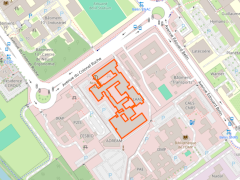Security and privacy
Attackers target a wide range of systems and exploit vulnerabilities at all levels (human, software, hardware). Our research reflects this diversity of threats by studying vulnerabilities and protection mechanisms in different application environments.
A major focus of our current work is security in the IoT [1-4], but we also address critical application domains such as avionics [5] and, more recently, space systems.
Human vulnerabilities are studied in collaboration with researchers in human sciences, with a focus on the social psychology techniques used in fraudulent messages.
Software vulnerabilities are addressed in part from the perspective of building more secure programming languages, using formal approaches. We are also interested in protecting against malicious code that exploits low-level vulnerabilities, such as those related to task scheduling [6] or cache sharing [7]. The goal is then to secure the execution environment of sensitive tasks or functions, such as cryptographic functions. In addition, cryptographic protocols are studied in their own right, including in a post-quantum framework [8].
Finally, we consider countermeasures against side-channel attacks at the physical level, such as attacks by observing energy consumption or electromagnetic radiation.
References
[1] Romain Cayre, Florent Galtier, Guillaume Auriol, Vincent Nicomette, Mohamed Kaâniche, Géraldine Vache Marconato, "WazaBee : attacking Zigbee networks by diverting Bluetooth Low Energy chips", Proc. 51st Annual IEEE/IFIP International Conference on Dependable Systems and Networks (DSN 2021), pp. 376-387, 2021
[2] Romain Cayre, Florent Galtier, Guillaume Auriol, Vincent Nicomette, Mohamed Kaâniche, Géraldine Vache Marconato, "InjectaBLE : Injecting malicious traffic into established Bluetooth Low Energy connections", Proc. 51st Annual IEEE/IFIP International Conference on Dependable Systems and Networks (DSN 2021), pp. 388-399, 2021.
[3] Pierre-François Gimenez, Jonathan Roux, Eric Alata, Guillaume Auriol, Mohamed Kaâniche, Vincent Nicomette, “RIDS : Radio Intrusion Detection and Diagnosis System for Wireless Communications in Smart Environment”, ACM Transactions on Cyber-Physical Systems, vol. 5, no. 3, 2021.
[4] Lamoussa Sanogo, Eric Alata, Alexandru Takacs, Daniela Dragomirescu, "Intrusion Detection System for IoT : Analysis of PSD Robustness", Sensors, vol. 23, no. 4, 2023.
[5] Aliénor Damien, Pierre-François Gimenez, Nathalie Feyt, Vincent Nicomette, Mohamed Kaâniche, Eric Alata, "On-board Diagnosis : A First Step from Detection to Prevention of Intrusions on Avionics Applications", Proc. 31st IEEE International Symposium on Software Reliability Engineering (ISSRE 2020), pp. 358-368, 2020.
[6] Jiyang Chen, Tomasz Kloda, Rohan Tabish, Ayoosh Bansal, Chien-Ying Chen, Bo Liu, Sibin Mohan, Marco Caccamo, Lui Sha, "SchedGuard++ : Protecting against Schedule Leaks Using Linux Containers on Multi-Core Processors", ACM Transactions on Cyber-Physical Systems, vol. 7, no. 1, 2023.
[7] Yuxiao Mao, Vincent Migliore, Vincent Nicomette, "REHAD : Using Low-Frequency Reconfigurable Hardware for Cache Side-Channel Attacks Detection", Proc. EuroS&P Workshops, pp. 704-709, 2020.
[8] Rémi Adelin, Cyrius Nugier, Eric Alata, Vincent Nicomette, Vincent Migliore, Mohamed Kaâniche, "Facing emerging challenges in connected vehicles : a formally proven, legislation compliant, and post-quantum ready security protocol", Journal of Computer Virology and Hacking Techniques, vol. 18, no. 4, pp. 425-452, 2022













